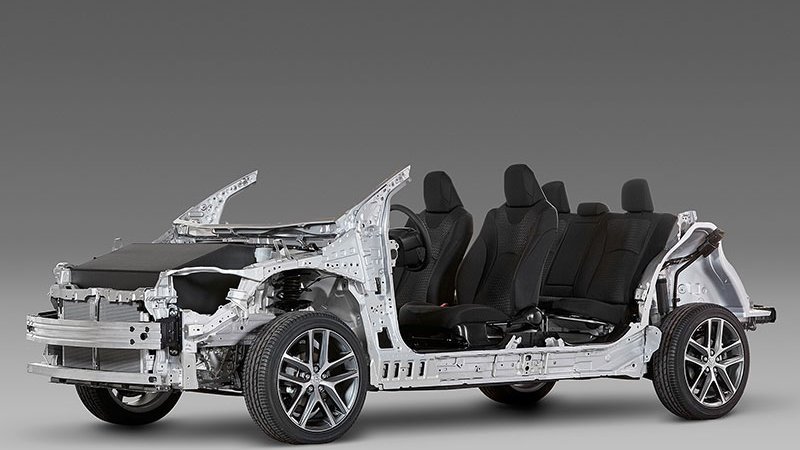Toyota's New TNGA Platform Could Boost Prius to 4.05 L/100km

It is crucial to understand that TNGA is fundamentally about a revolution in how Toyota designs and builds its cars - it even includes an overhaul of management and human resources - with one of the benefits being the new platform that the 2016 Prius will ride on.
The Daily Kanban goes in depth about the changes, but integrated development for powertrain and platforms serves to reduces costs through more parts-sharing at the same time as it creates more cohesive platforms that are lighter, more compact, and have more efficient layouts. Regarding hybrids, Toyota says the new drive unit layout along with small components could raise hybrid efficiency "by more than 15 %." That might enable the 2016 Prius to return 4.09 L/100km combined - almost 3.99 L/100km in the city, 4.28 L/100km on the highway. Plus, the higher rigidity, lower center of gravity, and better suspension of the new platform will provide a better driving experience. All of these changes will be reflected in platforms for large and rear-wheel-drive vehicles, too.
It is factory and build-process refinement that allows the development advances to be fully exploited. Toyota is making its lines more flexible, partly by having actual assembly lines that can easily be shortened, lengthened, or trucked somewhere else, and partly by introducing machines that can build parts for many different vehicles on the same line as needed, without using molds. The flexibility extends to capital investment, too, with much less money needed in order to switch to a new product build.
Toyota says it is doing this to "improve core vehicle performance and product appeal," the overhaul making it simpler to produce new designs and features. Factory workers benefit from the flexibility as well; being able to build more types of cars means they aren't hamstrung by the sales fortunes of a small number of models.
Nouvelles connexes


